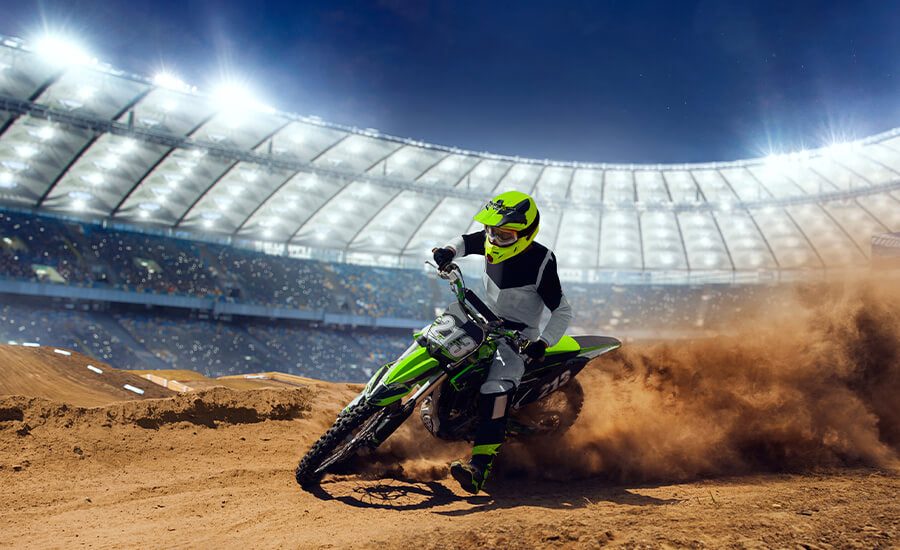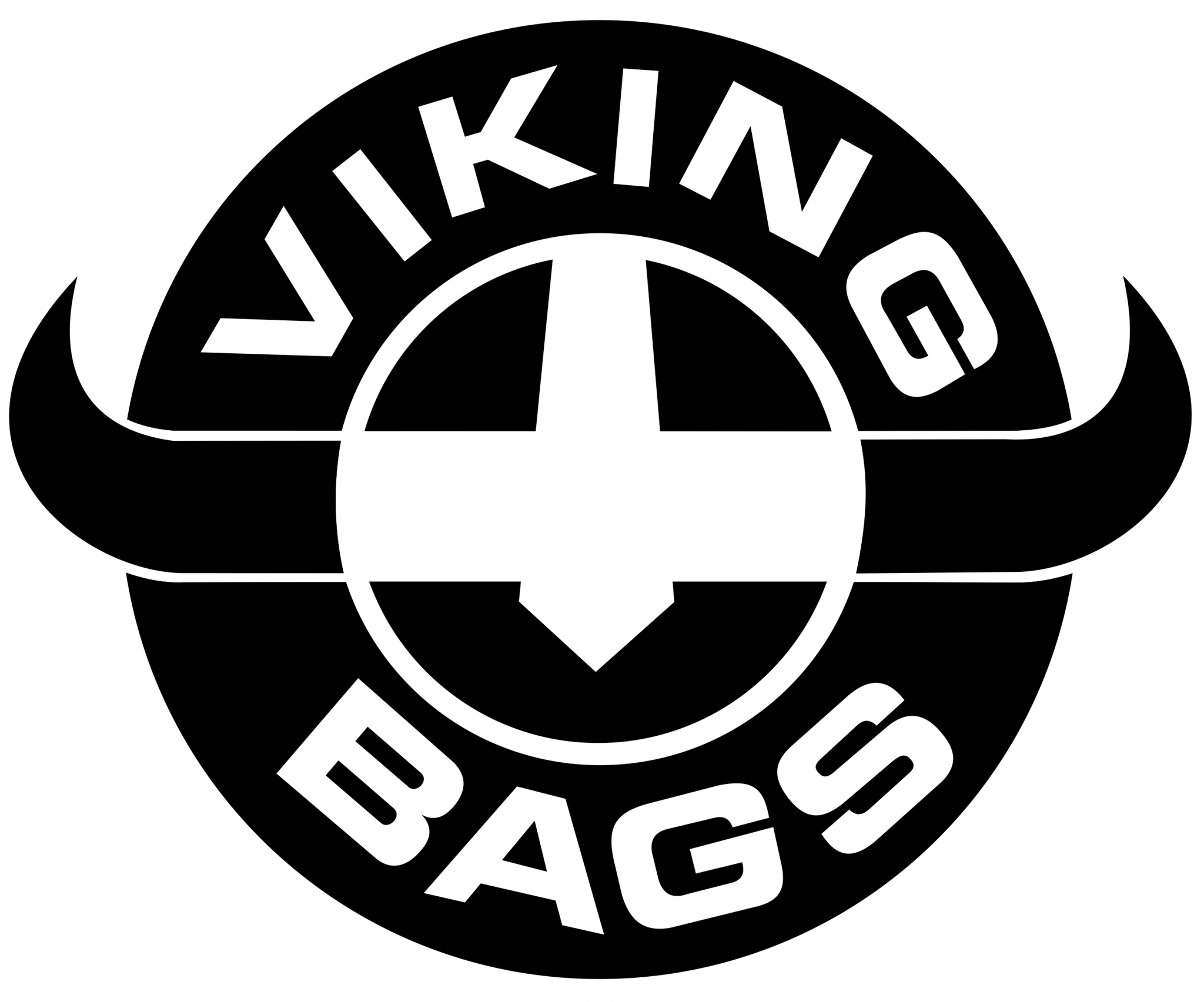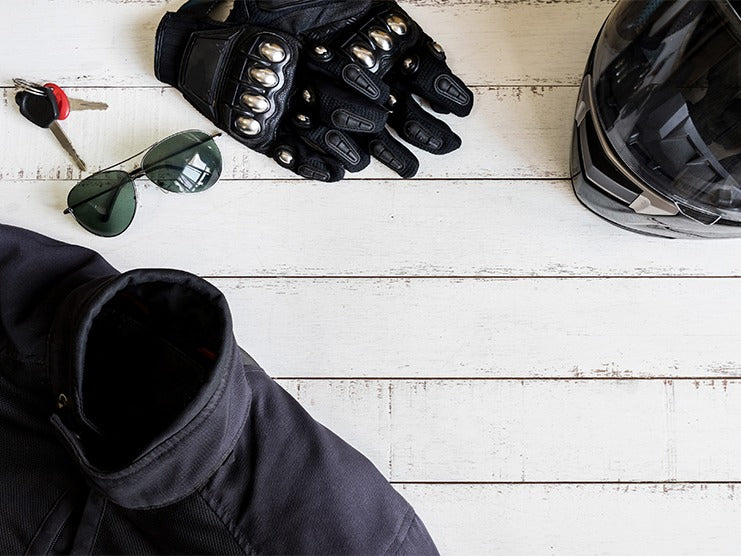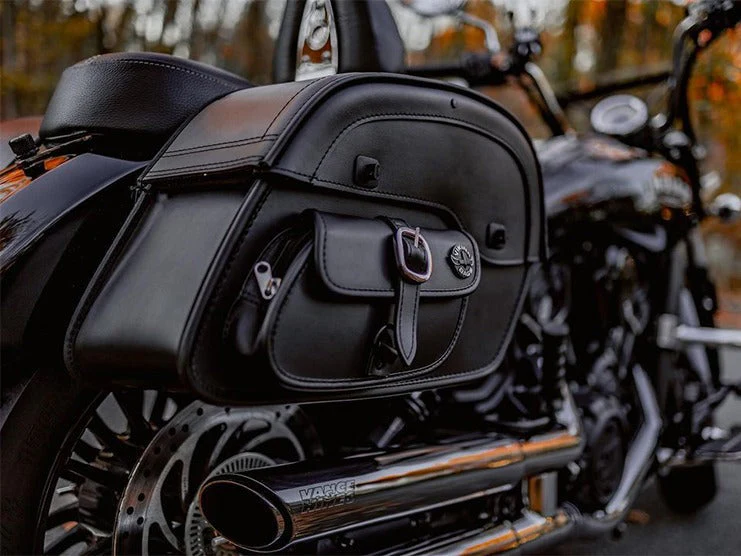When riding a motorcycle, safety should be on every motorcyclist’s mind. Because motorcycles lack durable frames, seatbelts, or airbags like other vehicles, riders need to take advantage of every possible feature that can reduce the chance of a collision. Several factors can affect your safety, such as the color of your riding equipment and motorcycle. Now, color may not seem to have much relevance to motorcycle safety. After all, what purpose does color serve other than changing the style of your belongings? However, you might be surprised how much color can help when traveling in traffic at any time of the day.
In this article, you will learn the importance of color in motorcycle riding gear, the factors that determine which colors are most effective, and the pros and cons of bright and darker colors.
Table of Content
1. The Importance of Color in Motorcycling Riding Gear
Motorcycle riding gear helps reduce the risk of suffering severe or fatal injuries in case of an accident. For example, the helmet protects your head from impacts and the gloves and boots keep your extremities from getting scratched if thrown off your ride. Your riding gear should include at least a DOT-approved helmet, boots, gloves, and a repair kit. Depending on their materials, whether fiberglass or leather, it may be possible to change their colors.
Though you can customize your riding gear to improve its looks, it is also possible to change its colors to make travel safer on roads with heavy traffic.
Though motorcyclists are free to use riding gear of various colors, there are certain factors to consider:
2. Weather Conditions

Some colors fare better in hot or cold weather conditions. You may have to switch to riding gear with color schemes better suited for specific weather.
2.1. Light-Colored Riding Gear for Hot Weather
In hot weather, it is best to use ventilated and light-colored riding gear. Clothes with good ventilation will be made from porous materials and have wide openings at the arms, neck, and bottom that ensure constant airflow throughout your body. Also, clothes with light colors tend to absorb less incoming lightwaves from the sun, though they cannot completely negate heat generated by your body. Many motorcyclists avoid wearing dark-colored gear since they tend to absorb more heat.
Spring and summer are considered peak riding seasons, which results in more motorcyclists being on the road throughout the United States. Since there are more sunny and clear days, riders can afford to travel for longer durations. Unfortunately, being out in the sun for a long time can result in fatigue, even if you bring water bottles or take frequent rest stops.
Luckily, it is possible to reduce heat exhaustion by wearing the appropriate riding attire. Well-ventilated gloves and pants will help your body heat escape. Long-sleeved clothing will cover your skin and prevent sunburn. However, avoid abrasion and impact-resistant clothing since they can be heavy, making it difficult for air to circulate. Instead, wear skin tight sweat-wicking layers that will ensure sweat evaporates quicker and helps constantly keep your body temperature low.
2.2. Dark-Colored Riding Gear for Cold Weather
During the fall and winter, the riding seasons come to an end and fewer motorcyclists will be riding around in cold weather. However, for the riders who use motorcycles for daily commutes, they must wear heated jackets, gloves, and pants. These types of clothing have dense layers to help retain body heat and come with electrical systems that artificially heat up the fabric to keep you warm.
It is also best to wear dark-colored clothes with reflective tape to improve visibility during the colder seasons. Sunset tends to occur earlier in the evening and more days have heavy cloud cover during the fall and winter. Because there is less time when the sun is visible, having clothing that reflects even in low light will ensure pedestrians and drivers will still be able to see you as night settles.
3. Visibility

Wearing riding gear with brighter colors will ensure better visibility because they are highly reflective and bounce off heavy light waves. Riding gear with bright colors will be easier for others to spot. Depending on the time of day, certain colors will better contrast against vehicles, surroundings, and lighting. From midday to afternoon, dark and light colors tend to offer relatively the same amount of visibility so long as there is minimal cloud coverage and constant sunlight. However, during the early morning and late evening, visibility tends to decrease, with the percentage dropping more sharply for darker colors. For example, wearing black riding gear can increase the risk of a collision by 47%.
4. Reflective Gear
Reflective gear, or high-visibility clothing, refers to any attire constructed from a luminescent material. This equipment is highly sensitive to light and can be visible from a distance even with minimal light. Examples of reflective riding gear include the following:
- Jacket
- Gloves
- Vests
- Helmet
- Pants
- Boots
Reflective gear are suited for any time of the day, though they are essential for traveling at night. Due to their highly reflective surface, they can help you be more visible to other riders. Reflective riding gear has been proven to lower the risk of colliding with hazards or other vehicles whose drivers may fail to notice you. According to The Hurt Report, a document provided by the U.S. Department of Transportation, 75% of collisions between motorcycles and larger motor vehicles were due drivers being unable to see and accidentally turning into motorcyclists.
If you wish to purchase reflective riding gear, it is best to get ones along the spectrum of yellow, orange, or red. These colors are able to catch the light emitted by headlights well, especially in dim light.
5. Colors
Motorcycle riding gear is capable of coming in almost any color from across the entire spectrum. These include bright solid colors, like white and yellow, to darker muted colors, like black and gray. Depending on which shade of color your riding gear has, it could have a significant effect on overall visibility.
However, there are a select few colors that offer the highest visibility: yellow, beige, cream, and white. However, of these options, white has been shown to be the best color for your riding gear. White does not blend in with the black asphalt roads. Instead, it stands out when compared to the surface and better draws the attention of other drivers, making it more likely you will be noticed.
Meanwhile, the colors that cover the opposite side of the visible spectrum included black, gray, silver, blue, green, and red. The first three colors offer a duller finish that offers a less shiny surface for which the sun, car lights, and other light sources bounce off. For the last three colors, the lack of visibility is only if they come in the darker shades that make them almost invisible in dim lighting. Otherwise, it is possible to get blue, green, or red riding gear from the brighter side of the spectrum.
Due to the diversity of colors, their percentage of visibility matters. Following table shows different colors and the percentage by which they reduce the risk of injury:
| Color | Reduced Risk of Injury (%) |
|---|---|
| Blue | 4% |
| Red | 20% |
| Yellow | 21% |
| Orange | 21% |
| White | 24% |
6. Tips on How to Improve Visibility on the Road
Comply with traffic laws
Depending on which state you live in, your motorcycle and riding attire must comply with road laws to be considered street-legal. Many U.S. states make it mandatory to wear brightly colored and highly reflective riding gear. The lightbulbs in your motorcycle’s turn signals, headlight, and brake lights must also be yellow and red.
Wear extra protective riding gear
Putting on additional layers of riding gear, such as an undershirt, vest, and jacket, will help reduce bodily injuries if you fall off or slide across the surface of the road. Depending on which riding gear you get, they may come with reflective material or pre-installed lighting that helps increase visibility.
Install auxiliary lights
Depending on the type of model you own, it may be possible to install aftermarket lights, whether to replace the factory versions or add additional ones to your vehicle’s frame. Aftermarket headlights may be able to illuminate across farther distances or could come in non-standard colors. Just make sure that it is legal to make adjustments to your motorcycle’s lights before doing so.
Add reflective tape
If you wish to make your riding gear or motorcycle easier to spot even in low light, it is possible to apply strips of reflective tape. Reflective tape can stick for a long time on your helmet or clothing or atop the motorcycle’s fairing or frame. Make sure that they are flat and straight to prevent dust or moisture from getting underneath and reduce adhesion.
7. FAQs
7.1 Does the Color of Your Motorcycle Matter?
Yes, because light-colored motorcycles have better visibility. If you have a dark-colored motorcycle, you can add reflective tape or vibrant colors.
7.2. Does White Motorcycle Riding Gear Absorb More Heat?
White riding gear does not absorb much heat. Instead, it disperses incoming light wavelengths, preventing excess heat from accumulating on the surface.
7.3. Why is Red Difficult to See on the Road?
Even though red can come as a bright color, it is not easy to detect. Red is meant to absorb higher light wavelengths, which makes it harder to see from a distance in low light.
8. Conclusion
When traveling on the road, visibility can affect how safe a motorcycle trip will be. Depending on the season, time of day, and weather, this can determine what color riding gear you may need. Lighter colors like white and neon yellow can be easily spotted from long distances, reducing the risk of getting into an accident. However, darker colors can help keep you warm and better complement your vehicle’s style. It is also possible to apply reflective tape on various surfaces on your motorcycle and riding gear to improve visibility. Viking Bags has many parts and luggage options, including sissy bars, fairing, handlebars, crash bars, sissy bar bags and motorcycle saddlebags for a better motorcycle riding experience.












Leave a comment
All comments are moderated before being published.
This site is protected by hCaptcha and the hCaptcha Privacy Policy and Terms of Service apply.